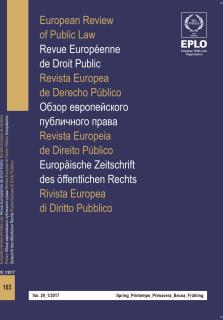
Pour une inversion des modalités de détermination
de la loi applicable aux litiges administratifs transnationaux
Professeur assistant à l’Université de Cergy-Pontoise
Attached to the study of administrative phenomena going beyond the strict national framework, transnational administrative law necessarily leads to extending to the administrative field the problems and the methods originating from private international law and in particular this of the determination of the law applicable to such an administrative activity characterised by an international element. The recent interest raised by this problematics leads, at the moment, both positive law and the doctrine to simply transpose the confrontational methodology traditionally applicable to relations between individuals in this special field, in disregard of its uniqueness. However, we think that it is possible and desirable to promote an alternative method of resolutions of conflicts of law in this field, precisely founded on the differences of the State interests at issue, of which the content of laws is here frequently borrowed.
S’attachant à l’étude des phénomènes administratifs débordant le strict cadre national, le droit administratif transnational conduit nécessairement à étendre à la matière administrative les problématiques et les méthodes issues du droit international privé et notamment celle de la détermination de la loi applicable à une telle activité administrative caractérisée par un élément d’extranéité. Or l’intérêt récent que suscite cette problématique conduit, pour le moment, tant le droit positif que la doctrine à simplement transposer la méthodologie conflictuelle traditionnellement applicable aux relations entre particuliers à ce domaine singulier, au mépris de sa singularité. Nous pensons néanmoins qu’il est possible et souhaitable de promouvoir une méthodologie alternative de résolution des conflits de lois dans l’espace en la matière, justement fondée sur la divergence des intérêts étatiques en cause dont le contenu des lois est ici fréquemment emprunt.





















